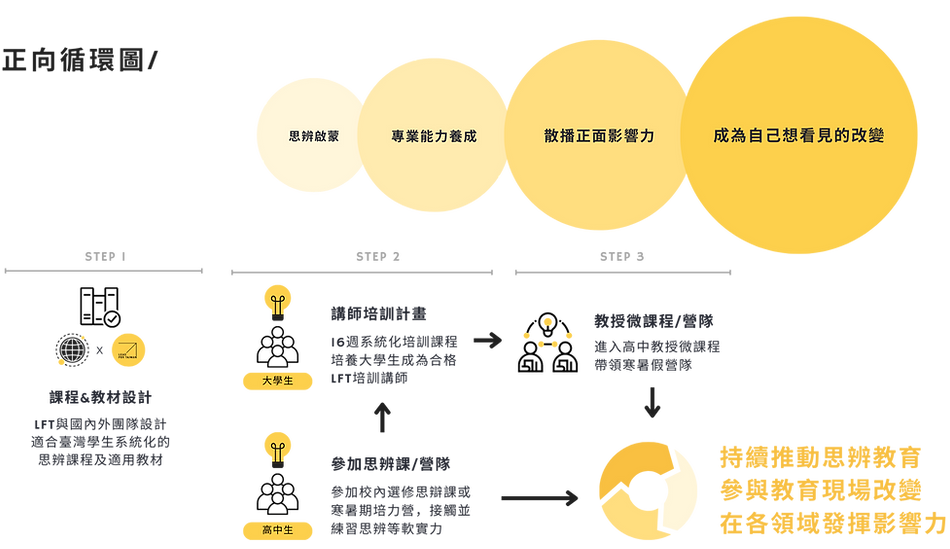Critical Thinking Education Popularization Movement
Giving everyone critical thinking ability.

The purpose of schools is to equip students with the ability to lead their way
- Dzenan Hakalovic (IB DP Global Politics Teacher)
The goal of Lead For Taiwan is to return education to its original purpose in Taiwan, allowing students to learn how to think critically, discern, and articulate themselves effectively in any scenario.
The prevalence of rote memorization-based learning, such as memorizing historical dates like 「西羅馬帝國瓦解的時間是西元476年。」、「漕漼是渡水時所發出的聲音。...」, dominates a significant portion of the curriculum in Taiwanese high schools and social sciences. As a result of this learning strategy, students are not able to develop a sense of active critical thinking as they are solely focused on memorizing right answers, therefore leaving them unprepared for complex social challenges in the future, including climate change, AI replacing human labor, food shortages, etc.
Through the Popularization Movement of Critical Thinking Education, Lead For Taiwan aims to enhance the critical thinking abilities of university students, enabling them to become skilled lecturers who continuously integrate these skills into the educational system, impacting a greater number of Taiwanese students through the implementation of this movement. Having critical thinking skills among Taiwanese youth will allow them to influence their families, schools, companies, society, and the globe, spreading a positive influence throughout the world.



